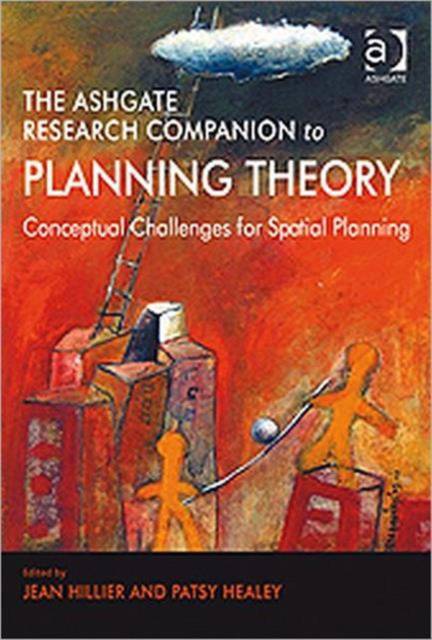
- Afhalen na 1 uur in een winkel met voorraad
- Gratis thuislevering in België vanaf € 30
- Ruim aanbod met 7 miljoen producten
- Afhalen na 1 uur in een winkel met voorraad
- Gratis thuislevering in België vanaf € 30
- Ruim aanbod met 7 miljoen producten
Zoeken
The Ashgate Research Companion to Planning Theory
Conceptual Challenges for Spatial Planning
Patsy Healey
Hardcover | Engels
€ 216,45
+ 432 punten
Omschrijving
At a time of potentially radical changes in the ways in which humans interact with their environments - through financial, environmental and/or social crises - the raison d'Ãatre of spatial planning faces significant conceptual and empirical challenges. This Companion presents a multidimensional collection of critical narratives of conceptual challenges for spatial planning. The authors draw on various disciplinary traditions and theoretical frames to explore different ways of conceptualising spatial planning and the challenges it faces. Through problematising planning itself, the values which underpin planning and theory-practice relations, contributions make visible the limits of established planning theories and illustrate how, by thinking about new issues, or about issues in new ways, spatial planning might be advanced both theoretically and practically. There cannot be definitive answers to the conceptual challenges posed, but the authors in this collection provoke critical questions and debates over important issues for spatial planning and its future. A key question is not so much what planning theory is, but what might planning theory do in times of uncertainty and complexity. An underlying rationale is that planning theory and practice are intrinsically connected. The Companion is presented in three linked parts: issues which arise from an interactive understanding of the relations between planning ideas and the political-institutional contexts in which such ideas are put to work; key concepts in current theorising from mainly poststructuralist perspectives and what discussion on complexity may offer planning theory and practice.
Specificaties
Betrokkenen
- Auteur(s):
- Uitgeverij:
Inhoud
- Aantal bladzijden:
- 520
- Taal:
- Engels
Eigenschappen
- Productcode (EAN):
- 9780754672548
- Verschijningsdatum:
- 28/07/2010
- Uitvoering:
- Hardcover
- Formaat:
- Genaaid
- Afmetingen:
- 168 mm x 245 mm
- Gewicht:
- 1119 g

Alleen bij Standaard Boekhandel
+ 432 punten op je klantenkaart van Standaard Boekhandel
Beoordelingen
We publiceren alleen reviews die voldoen aan de voorwaarden voor reviews. Bekijk onze voorwaarden voor reviews.











